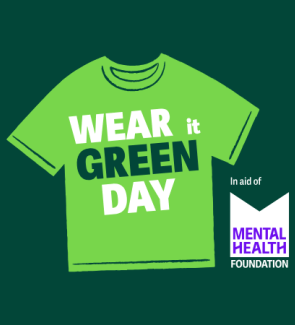Mental Health Awareness Week 2025
This year, Mental Health Awareness Week will take place from 12 to 18 May 2025.
The theme for 2025 is 'Community', and we want to use Mental Health Awareness Week to celebrate the power and importance of community.
Being part of a safe, positive community is vital for our mental health and wellbeing. We thrive when we have strong connections with other people and supportive communities that remind us we are not alone. Communities can provide a sense of belonging, safety, support in hard times, and give us a sense of purpose.

